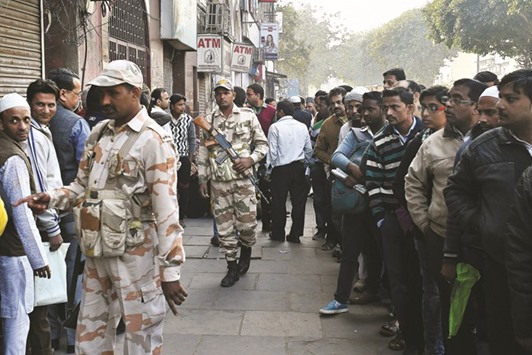A few months ago, the path seemed to have been cleared for the introduction of Islamic finance in India after the country’s central bank made a proposal to launch Islamic banking windows at conventional banks. This would have had two crucial effects: Firstly, greater financial inclusion of unbanked Indians, not necessarily only around 170mn Muslims, but also those interested in ethical banking, and, secondly, an increased influx of investments from Muslim regions, namely the Gulf, into India.
However, the proposal got rebuffed in December by the Indian finance ministry which, in a surprising declaration, argued that Islamic banking was “not relevant” any more in achieving the objectives of financial inclusion as the government had already introduced other programmes for all citizens towards that end.
India’ Minister of State for Finance Santosh Kumar Gangwar also said that a number of legal changes would become necessary even if limited Islamic finance products were to be introduced, which would result in “numerous legal hurdles.”
In fact, observers have said that the opposition against the introduction of Islamic finance in India comes mainly from powerful Hindu groups who use their influence on the prime minister to fend off the introduction of Shariah-compliant banking.
The Muslim community in India has welcomed the initial decision but expressed concern over politicising the issue.
Prime Minister Narendra Modi, in turn, in his diplomatic outreach to Arab nations originally seems to have given the idea of introducing Islamic banking in India a thumbs-up, but is now obviously backpedalling.
H Abdur Raqeeb, General Secretary of the Indian Center for Islamic Finance, said that he regrets the opposition against Islamic banking in India, arguing that the counter-arguments were unpersuasive. He said that there was no need for an amendment in the existing Banking Regulation Act, simply a notification would suffice. The hesitation to open Islamic finance channels at conventional Indian banks would also severely limit the attraction for Muslim investors, particularly cash-rich entities, companies and individuals from the Gulf, to put their money into India and thus nip a respective boost for India’s economy in the bud.
“There are various sovereign funds in the Gulf countries with billions of dollars waiting to invest in India,” Raqeeb said, adding that “the introduction of Islamic banking could give a green signal to people in nations like the UAE, Qatar and Bahrain to invest here.”
He suggested that such investment could flow in real estate and infrastructure development, and, with the new Shariah-compliant gold investment standard, also in India’ large gold market.
However, with the continued opposition against Islamic finance in India, the country would lose out on such huge opportunities, he argued.
In terms of financial inclusion, Raqeeb pointed out that the Muslim community in India could still greatly benefit as a majority of them did not have bank accounts and Muslim-majority areas used to be described as “negative zone” by conventional banks. He said that communities could improve themselves and develop their economical foundations if Islamic banking facilities were made available.
“If Japan has an Islamic Bank, London has it, and many non-Muslim countries have it, why not India?” he said, pointing out that even the World Bank has lauded Islamic banking for being an effective tool for financing development globally and that it had the potential to address the problems of poverty and boost shared prosperity. The global lender acknowledged that, in fact, the Islamic banking system is not only about avoiding paying or receiving interest, but also about equitability, helping the economically weak and disadvantaged and giving an opportunity to small enterprises by encouraging and supporting their endeavours through risk-sharing financing.
A possible solution to the stalemate of Islamic finance in India could be to drop the religious terms in naming this form of banking and just introduce it as ethical banking or “participation banking” such as in Turkey, some experts suggested. As a start and to distinguish them from conventional banks, such “participation banks” would not grant cash credit but buy goods for clients and hand over ownership after they got repaid in instalments plus a mark-up by the borrower in a simple murabaha structure. Further development of participation banking products and investment solutions could follow.

Security personnel patrol the area as people wait in line near a bank branch in New Delhi (file). The hesitation to open Islamic finance channels at conventional Indian banks could severely limit the attraction for Muslim investors, particularly cash-rich entities, companies and individuals from the Gulf, to put their money into India and thus nip a respective boost for India’s economy in the bud.
